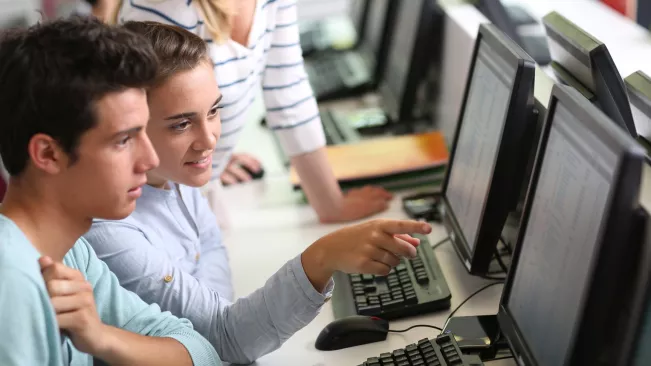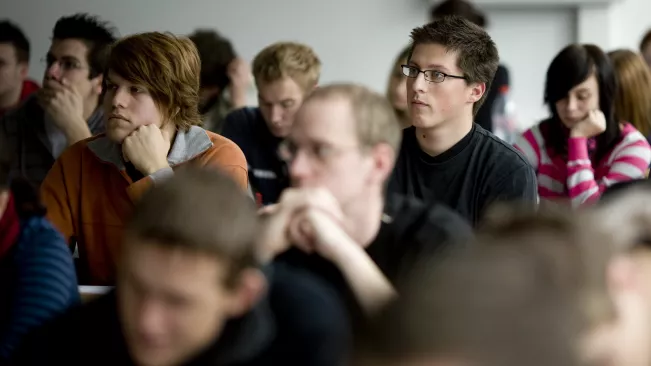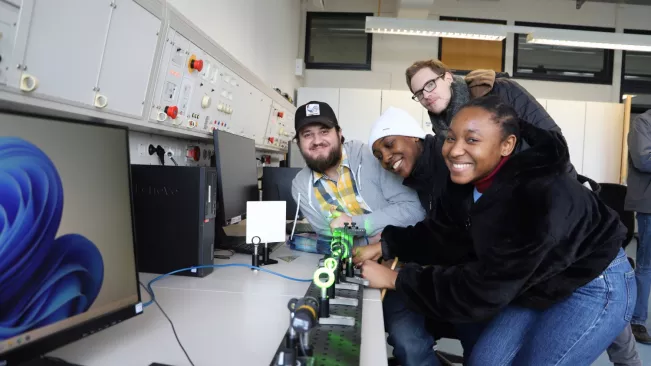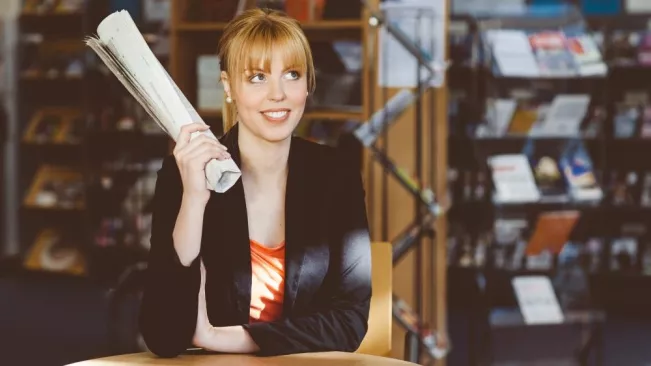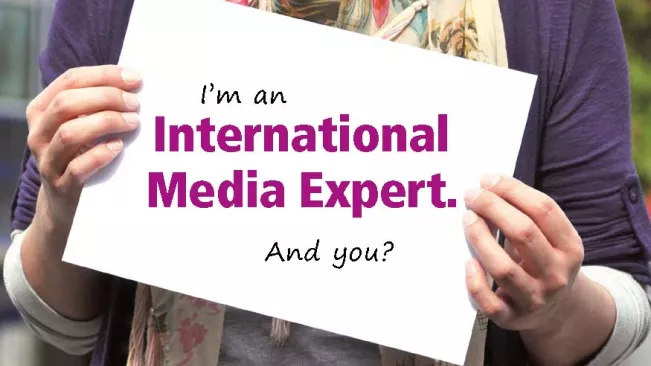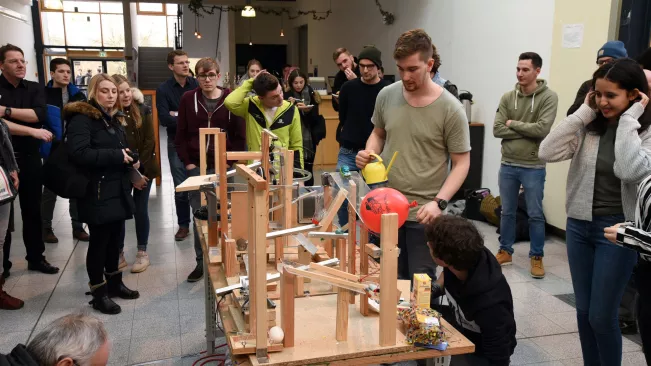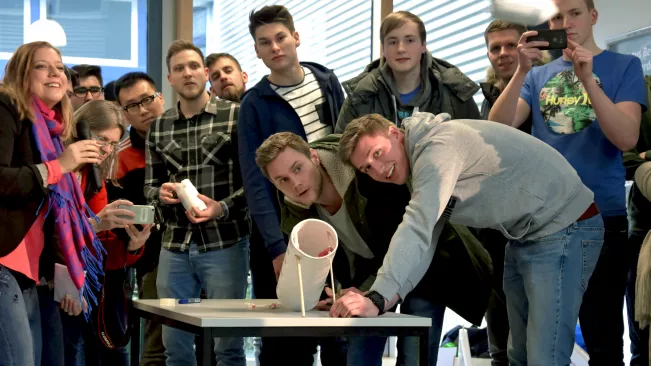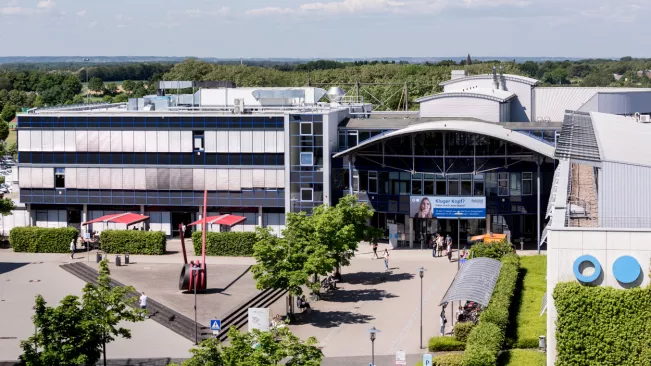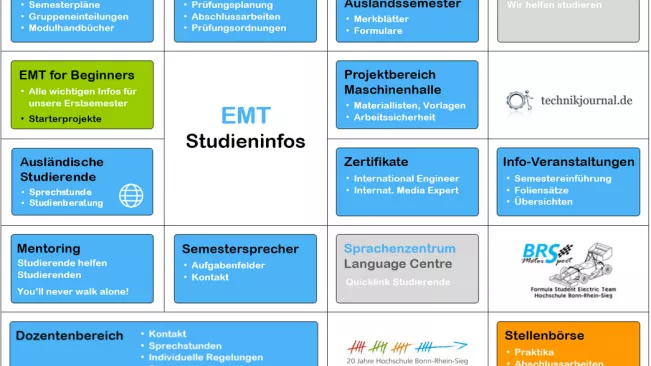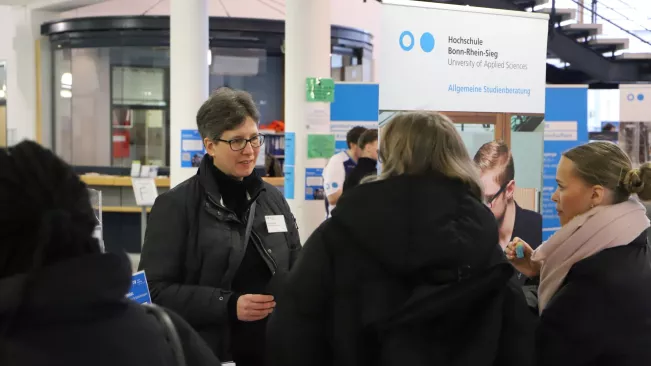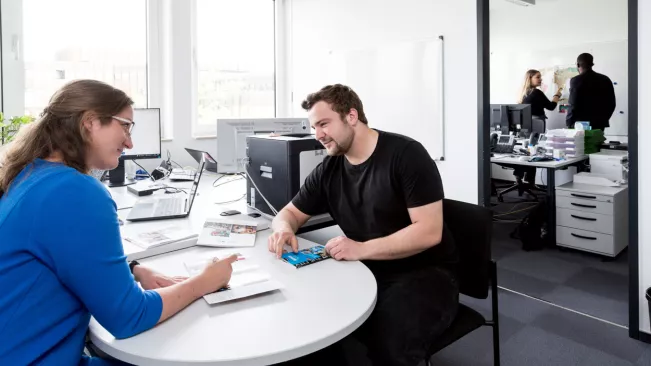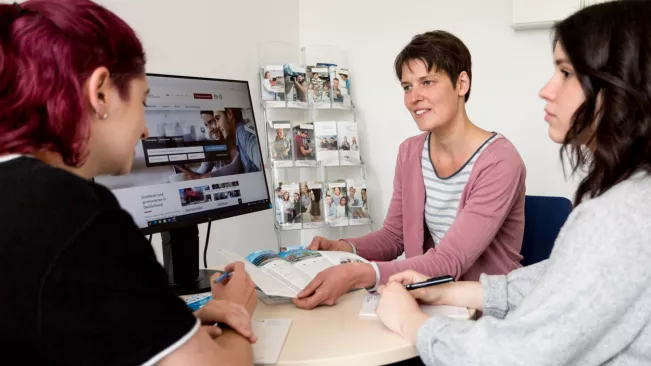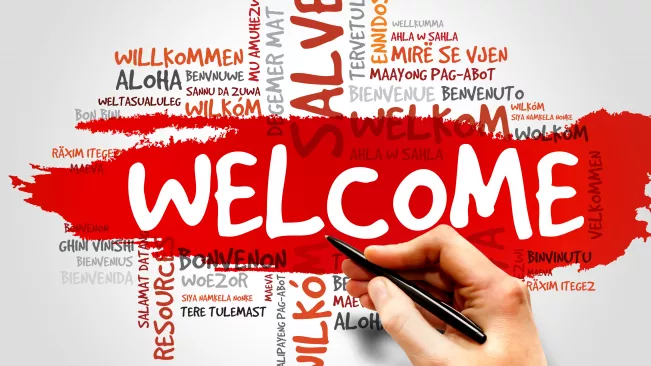Department of Engineering and Communication
Visual Technical Communication (BSc)
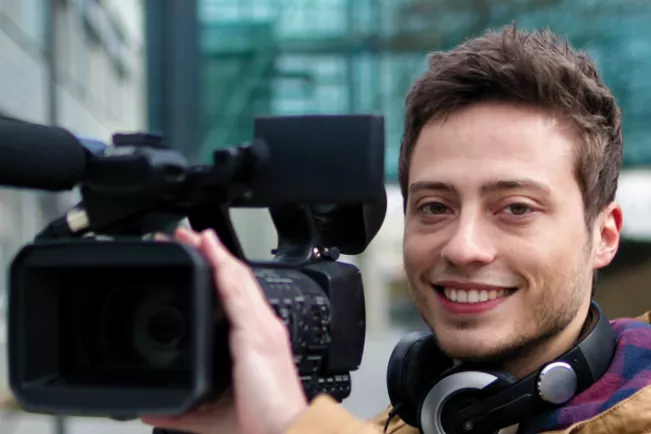
Programme content
The Visual Technical Communication degree programme is the first in Germany to combine visualisation, technology and communication. It is directed at anyone who mainly wants to work with visual formats in technical journalism and technical communication. The media world is digital and mobile. Already, many people access information mainly via their smartphone and prefer social media and video platforms such as YouTube as sources of information. Visual formats are becoming more important. Videos, photos, graphics and virtual reality (VR) will continue to revolutionise communication beyond language barriers.
First, students in the bachelor’s degree programme in Visual Technical Communication (BSc) learn the manual tools used by media professionals and become acquainted with the professional fields in technical communication. This content is supplemented by the MINT subjects - mathematics, computer science, the natural sciences and technology. Students further develop their theoretical and practical knowledge in forms of visual presentation, produce different film formats and acquire knowledge from corporate and market communication.
During the practical semester (5th semester), students gain direct experience of working for editorial boards, agencies and companies. As an alternative, they can also complete a study semester abroad. In an interdisciplinary creative module, they are presented with visualisation challenges. Students provide evidence of their skills as communication professionals through practical work in the media, which also serves as a reference when entering into the profession, before completing the degree programme with a bachelor thesis and the colloquium.
Perspectives and job prospects
The demand for specialists who are able to communicate complex technical material is high. Graduates of the bachelor’s degree programme in Visual Technical Communication (BSc) work as video journalists, social media editors and PR consultants on editorial boards in journalistic media, publishing houses, production companies, agencies and press and PR departments.
Building on the bachelor’s degree programme in Visual Technical Communication (BSc), the Hochschule Bonn-Rhein-Sieg University of Applied Sciences offers thee master’s degree Digital Communication and Media Innovation (MA) an.
Required language skills
All courses are held in German. A very good knowledge of German is required.
Location
Study with us on a modern campus equipped with a digital multimedia studio. The Sankt Augustin campus is located in NRW and is easy to reach by public transport from Cologne, Bonn, Düsseldorf or Koblenz.
„What I appreciate most about my degree programme is all the practical work. Every semester we create great contributions and with the good technical equipment, media production is simply fun.”
Christina Grommes - Student of Visual Technical Communication

Study Facts
Degree
Bachelor's degree
Standard period of study
Seven semesters / 210 ECTS
Lecture language
German
Campus
Sankt Augustin
Start of study
Winter term
Type of study
Full-time
Admission requirements
Formal requirements for admission are either the entrance qualification for universities of applied sciences, a general higher education entrance qualification, a corresponding professional qualification or a previous qualification recognised as equivalent.
Admission type and enrolment deadline
The degree programme is admission-free. You can enrol from 15 June to 1 October for the start of the winter semester.
Language skills
German
Costs
Only the current semester fee is payable for this degree programme: Link Semester fees and Administrative fees.
Download flyer
Contact points
Departmental Office Engineering and Communication
Campus
Sankt Augustin
Room
A 157
Opening hours
Montag bis Donnerstag: 09:00 - 15:00 Uhr
Freitag: 09:00 - 14:00 Uhr
Course guidance service Bachelor Visual Technical Communication
Campus
Sankt Augustin
Room
B 205
Opening hours
Wir freuen uns auf Ihre Kontaktaufnahme.
Contact to the Student Services
Opening hours
Telephone consultation hours: Monday - Friday: 10:00 - 12:00
Personal consultations by appointment only
IWK Student Council
Campus
Sankt Augustin
Room
A 041
Opening hours
Mondays to Fridays: just drop by!
Study workshop
Campus
Sankt Augustin
Room
Online
Opening hours
The Study Workshop takes place during the lecture-free period in the form of web conferences and online forums during normal working hours: The current online times of the lecturers and mentors can be found in the LEA course Studierwerkstatt.
Documents
to download
